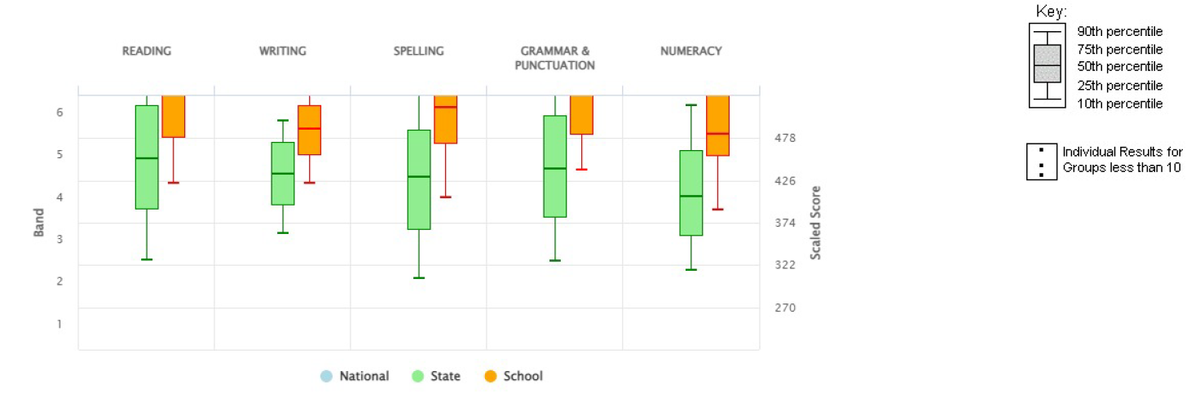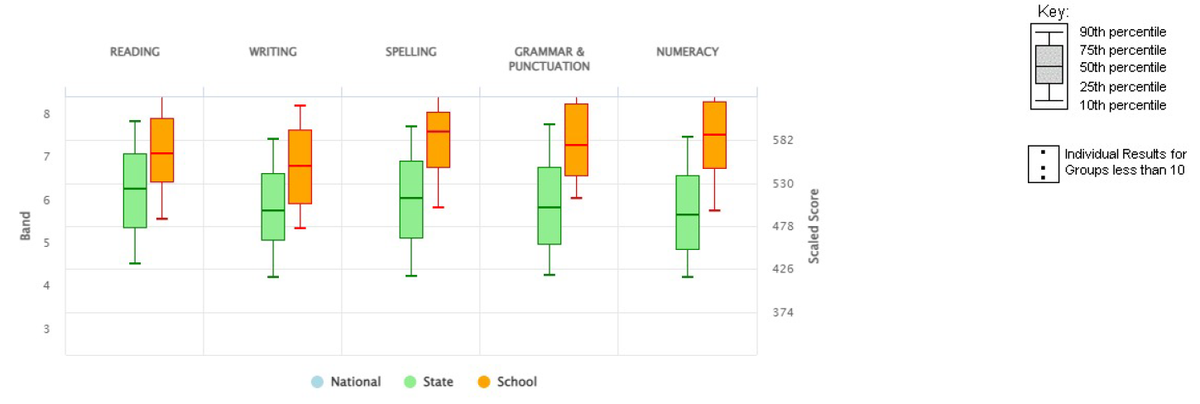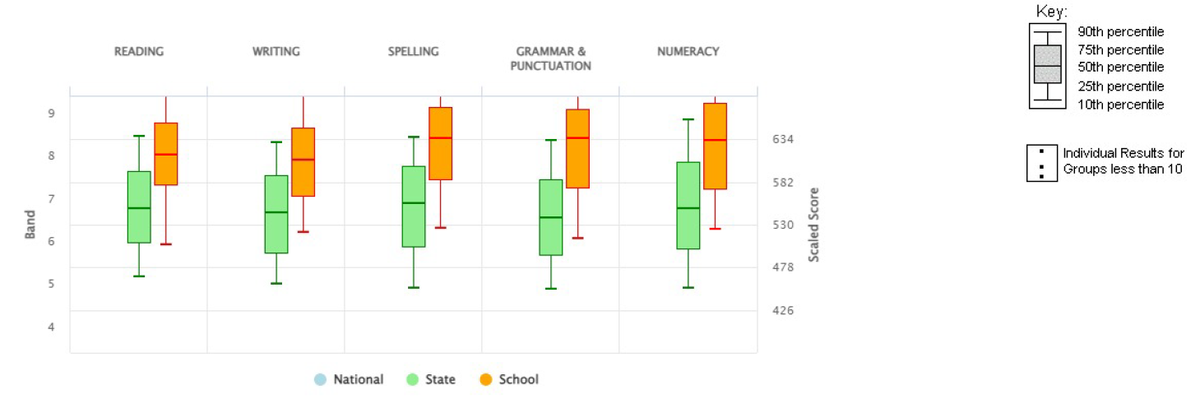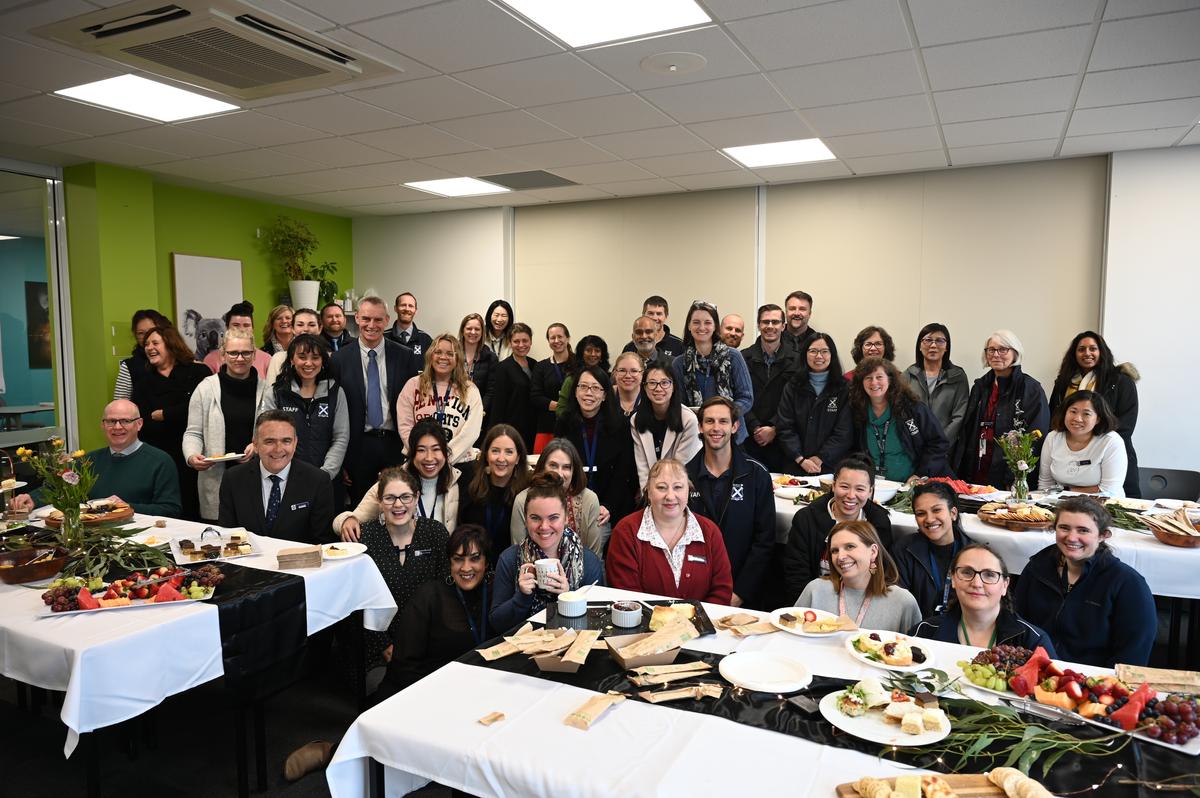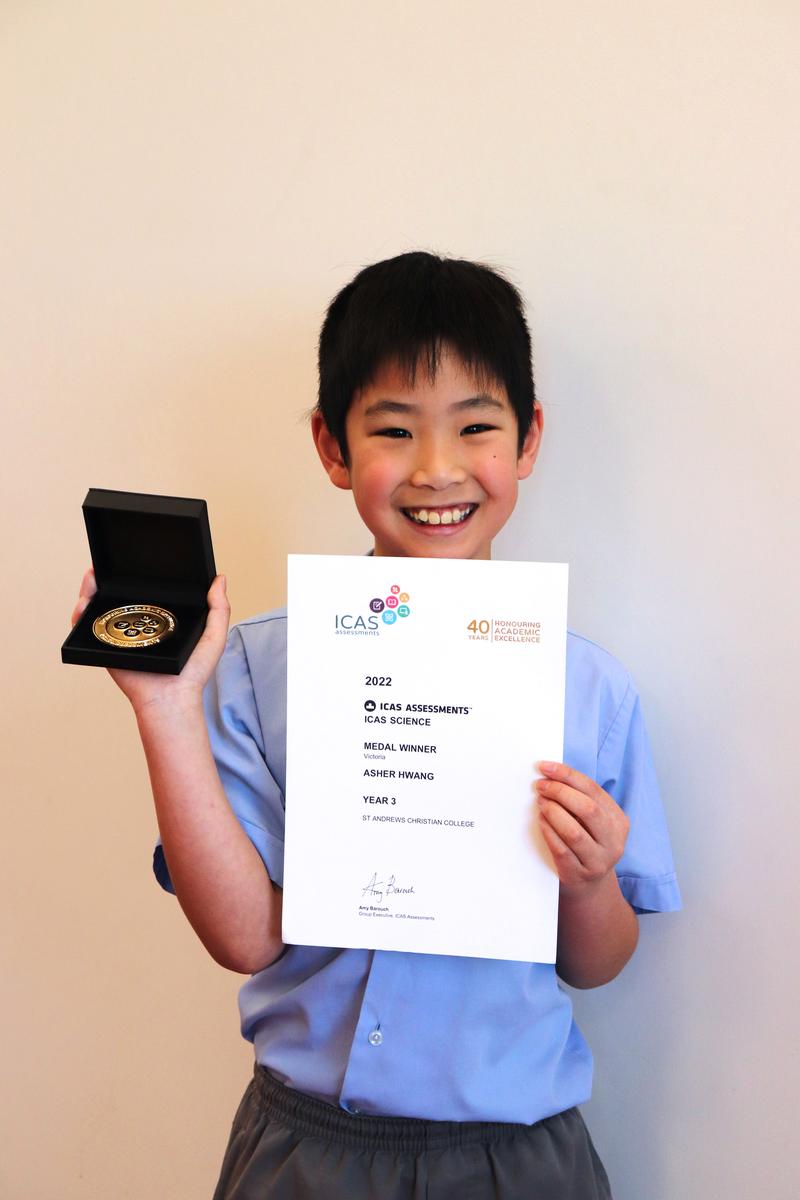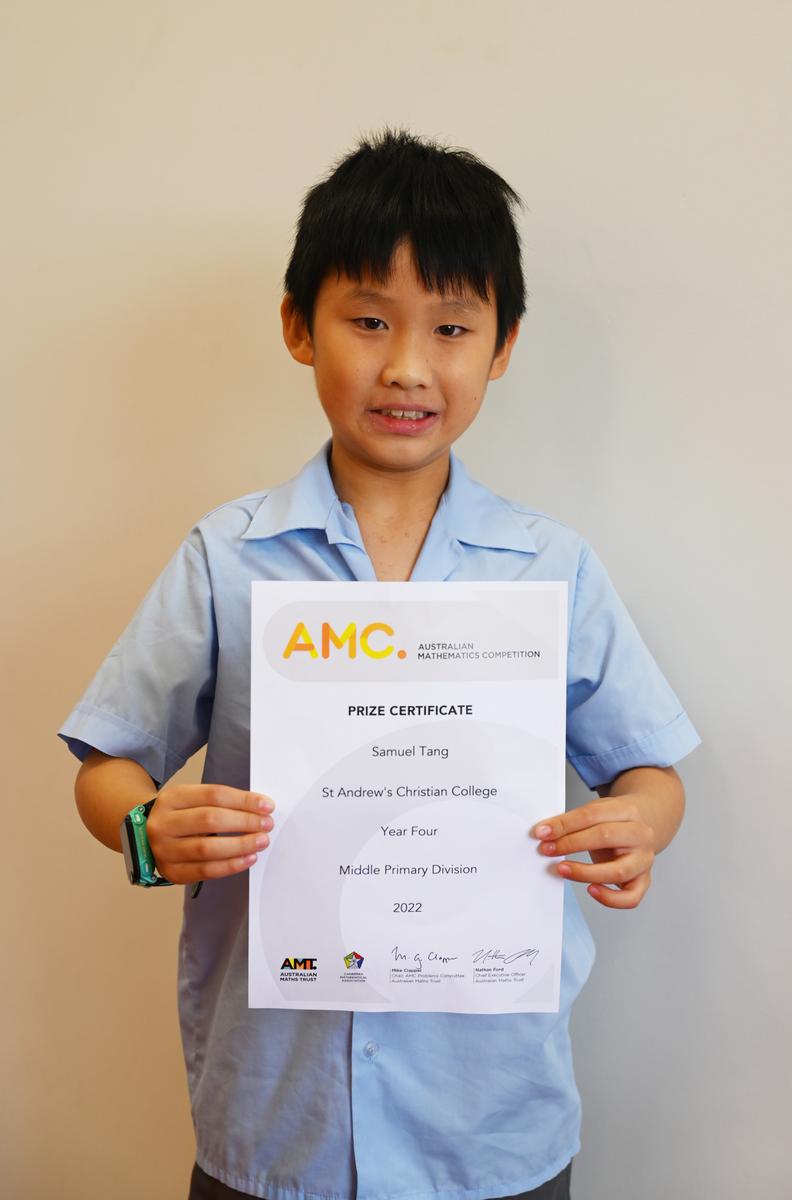LEARNING AND TEACHING
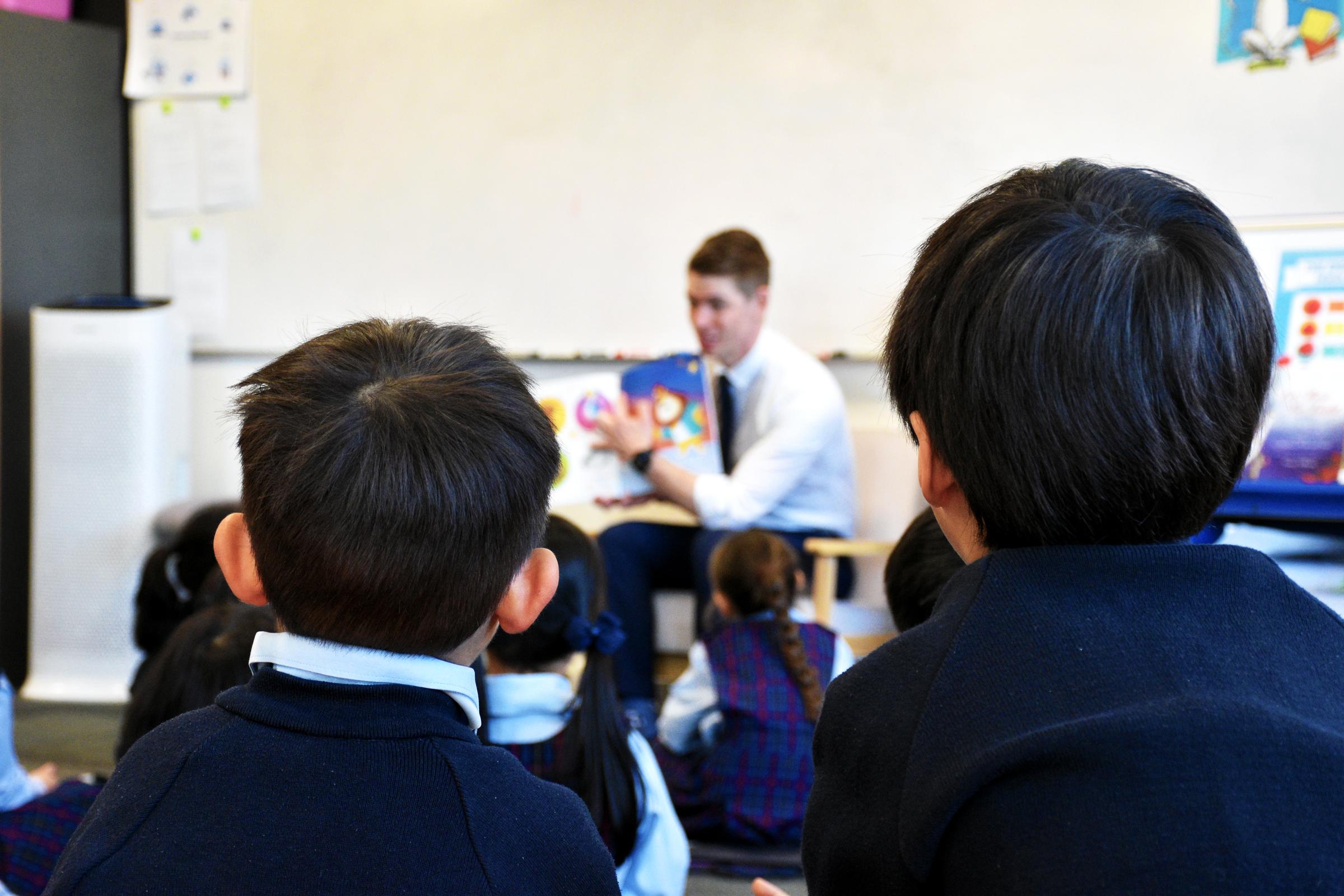
NAPLAN 2022
The VCAA has recently released the National and State results for NAPLAN 2022. Once again, St Andrews students have performed to an outstanding level on these tests. The graphs below show the degree to which St Andrews’ students are above the relevant State level. Further information can be found in the 2022 NAPLAN Achievement Report for Parents.
Reminder:
NAPLAN Tests 2023 will be conducted during Term 1 from the 15th – 17th March.
Year 3
Year 5
Year 7
Year 9
Michael Swanborough
Deputy Principal – Learning and Teaching
World Teachers’ Day
World Teachers’ Day was celebrated on Friday 28th October. At St Andrews’, a special morning tea was arranged to say “thank-you” for the wonderful contribution that teachers, support staff and administration staff make to our College community.
Michael Swanborough
Deputy Principal – Learning and Teaching
ICAS Medal Winner
Congratulations to Asher Hwang (Year 3) who has received a medal for his outstanding achievement in the Year 3 Science ICAS Competition.
Michael Swanborough
Deputy Principal – Learning and Teaching
Australian Mathematics Competition (AMC)
A total of 76 students from Year 3 through to Year 10 competed in the Australian Mathematics Competition. Prizes are awarded to students who score in the top 0.3% of the State, High Distinctions to the top 3% (or top 5% for Senior level), Distinctions to the top 20% and Credits to the top 55%.
The table below summarises the excellent achievement of our students:
Prize | High Distinction | Distinction | Credit | Total Entries | |
| Year 3 – Middle Primary |
| 3 | 3 | 6 | 13 |
| Year 4 – Middle Primary | 1 | 1 | 9 | 2 | 15 |
| Year 5 – Upper Primary |
| 3 | 9 | 5 | 17 |
| Year 6 – Upper Primary |
| 2 | 6 | 3 | 12 |
| Year 7 – Junior |
| 1 | 5 | 3 | 9 |
| Year 8 – Junior |
|
| 2 | 1 | 3 |
| Year 9 – Intermediate |
|
| 2 | 1 | 5 |
| Year 10 – Intermediate |
|
| 2 |
| 2 |
Congratulations to Samuel Tang (Year 4) who received a Prize for his outstanding achievement in the Middle Primary section of the competition. Samuel also received the Best in School Award.
Congratulations also to the following students who received either a High Distinction or Distinction:
High Distinction:
Year 3: Asher Ming Xuan Hwang, Joseph Lim, Pearl Wang
Year 4: Isabella Yin
Year 5: Jiamiao Liu, Chris Mei, Jayden Yang
Year 6: Gabriel Liu, Jin Wang
Year 7: Tobias Setiawan
Distinction:
Year 3: Samuel Chong, Walter Lay, Genevie Lee
Year 4: Zoe Almodiel, Ellie Chong, Gabriel Fong, Gabriel Lau, Jordan Nah, Shiphrah Wang, Jett Wong, Cissy Zhang, Joyce Zhao
Year 5: Peter Chen, Charlotte Cheung, Jason Kiswoto, Zara Lim, Tom Lyu, Samuel Ng, Jacqueline O'Brien, Edrick Soh, Sarina Tang
Year 6: Joshua Chen, Catherine Cheung, Heidi Connolly, Angela He, Declan Lee, Eric Li
Year 7: Lucas Chen, Jayden He, Naomi Law, Ethan Loke, Connor Xu
Year 8: Evan Widjaja, Katie Yee
Year 9: Talia Setiawan, Junxiao Xiang
Year 10: Joy Jayanthan, Summy Yee
Michael Swanborough
Deputy Principal – Learning and Teaching
McCrindle "Future of Education" Report – Part 3
In Issues 5 and 7 of the College Newsletter, I included some extracts from the McCrindle "Future of Education" Report.
The report is titled: Equipping Students to Thrive in the New World of Work and includes some fascinating insights into the world of work our young people will be facing. The infographic below summarises the work transitions framing the new world of work. Issue 5 of the College Newsletter focused on the first two transitions listed and Issue 7 focussed on transitions three and four. In this issue, information about transitions five and six is included:
Generational divide to intergenerational connection:
With Australians living longer and working later, the workforce is becoming increasingly generationally diverse. Although Baby Boomers are currently more active in the workforce for their age than those before them, the next decade will see a changing of the guard. By the year 2031, there will be five generations in the workforce and the opportunity for generational division is ripe. Alongside this, many Baby Boomers will be easing out of the workforce, leaving a significant knowledge, labour and leadership gap. The future workplace is generationally diverse and to thrive needs intergenerational connections to be fostered. Currently, 61% of workers believe their workplace is extremely or very effective at creating a culture that is inclusive of all generations. While this is good, there is room to improve with just half of workers (49%) believing their workplace is effective at creating opportunities for older staff to impart their wisdom and learnings to younger staff. Equipping today’s students with an attitude that honours experience and desires to learn from those who have gone before them will put them in a position to flourish in the generationally diverse workplace of the future.
Security to purpose:
A job is not just seen as a form of employment that provides a sense of economic security but is increasingly linked with a worker’s sense of purpose. The years of economic prosperity in Australia have in part allowed this shift to take place. In the context of prosperity, a worker’s economic needs are met providing safety and security, allowing them to focus their attention on the higher order drivers of self-actualisation and purpose. This is seen particularly in the next generation of workers coming through, where the number one desire for their future career is to have purpose and meaning in their work (72%). This generation are a values-driven generation and are looking for a workplace where their work can align with their core values (68%). This focus on purpose and values is transforming the workplace. Workers are not content with the status quo and are holding organisations to account for their actions and choosing to work for organisations they believe in. This is requiring a different set of leadership skills that focus on empathy, transparency, and accountability.
Further information can be found at https://mccrindle.com.au
At St Andrews, we are constantly looking to equip and enable our students to be people who make a positive difference in their society. We also know that as Christians, our sense of purpose is found in God and that we find our fulfilment in life when we put our trust in Him. Our calling to a particular vocation is an outworking of our faith and an opportunity to work collaboratively with others; treating everyone with dignity and respect. Four of the key elements in our Graduate Profile are: “Authentic Faith”, “Relationally Engaged”, “Leader by Example” and “Desire to Serve.” Each of these attributes will enable our students to be effective and to flourish in the world as they share the hope which can only be found through a relationship with Jesus.
Michael Swanborough
Deputy Principal – Learning and Teaching
Learning Support
As the year rapidly comes to a close, it is good to reflect on all that has happened this year. A full year of school on campus, God’s provision of staff, the growth and development of each of the students, face to face meetings for the ASD Parent Support Group and so many other things. We are incredibly grateful for the way that parents have partnered with us to ensure that students have the best chance to thrive and grow. Thank you!
We look forward to a wonderful New Year, knowing that God already knows all about it. Our prayer is that as you rest and are refreshed over the school holidays, that you are able to enjoy time with family and friends and be refreshed in your walk with the Lord.
Shirley Gillie
Head of Learning Support

